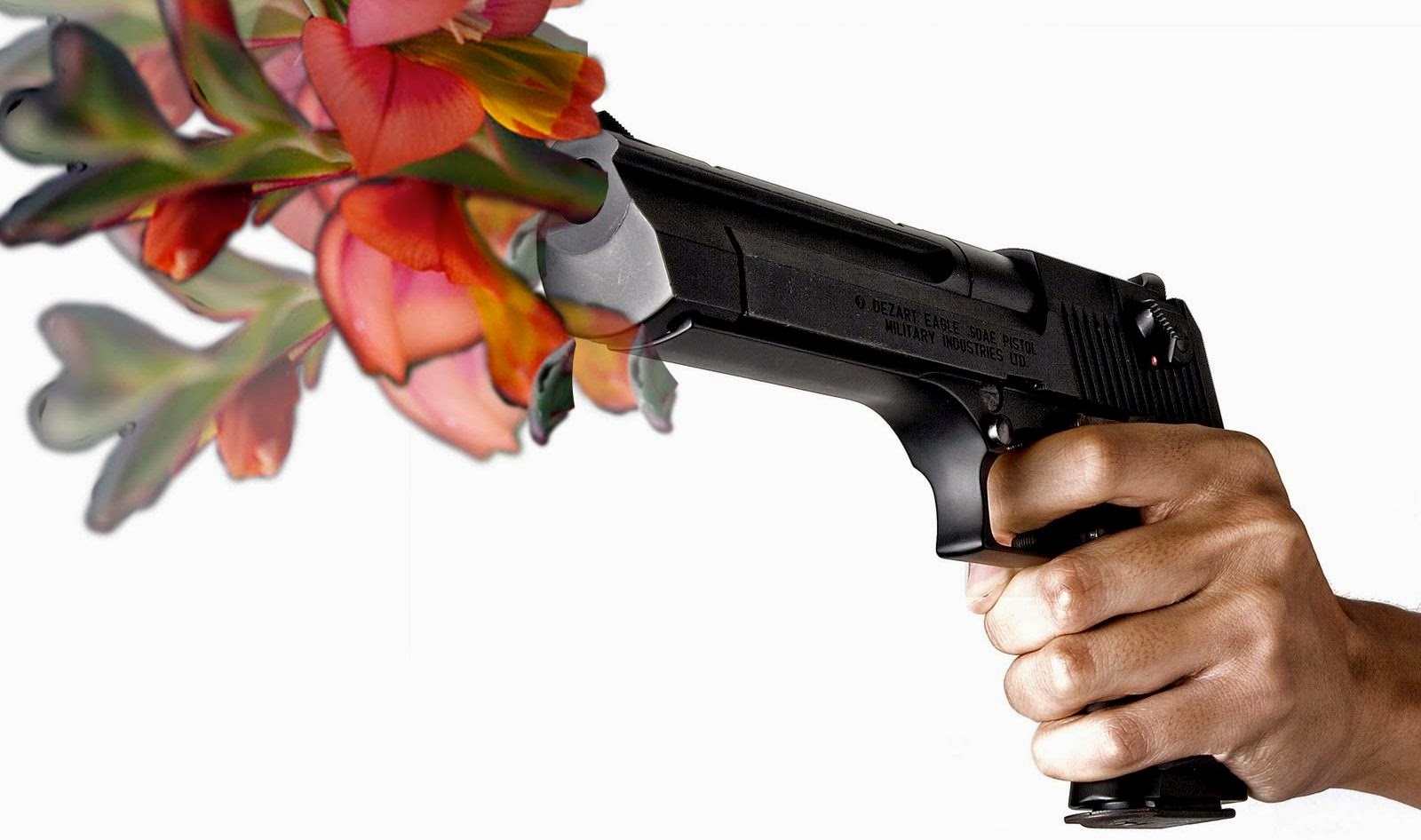A case that (on its surface) pits free speech against gun rights has been making the rounds. A female scholar invited to speak at Utah State University cancelled her appearance there after receiving death threats. In explanation she cited Utah laws allowing people to carry guns on campus, and the campus police's inability to regulate the presence of guns at her talk. She also criticized the university for not doing enough to insure her safety.
Since the speaker fits the profile of the Left (a feminist scholar engaged in cultural critique of misogyny in video-game culture) and the thing she complains about is one of the banner issues for many on the Right (the right to carry firearms freely), this pretty much guarantees this story plenty of airplay. And while there will be some thoughtful discussions, for the most part this will generate a great deal more heat than light in the coming days.
In an effort to promote the former and try to avoid the latter, I want to pick up on one particular aspect of the larger argument here: the discussion about guns and personal safety. This is a subject on which I have written quite a few times in the past (do a search for Gun Control or Stand Your Ground on this blog and you'll find plenty of references). Readers will note that I am not a purist on the issue, insofar as I have written that there are circumstances under which the carrying or employment of personal firearms can protect someone.
But here is where a dose of wisdom from my academic field - the study of conflict at the international level - comes in handy. Because "security" is really two things: whether you are secure, and whether you feel secure. It is both objective and perceptual. And these two aspects are not at all the same thing.
Objective security is often knowable only after the fact: you either are attacked or you aren't. If no one attacks you, you are objectively secure. However, you may not feel secure. If you feel that an attack is imminent or even possible, you may perceive yourself as being insecure even when, at that particular moment, you are not being attacked. And that's where the trouble lies.
Advocates of concealed-carry or open-carry rights talk a lot about how guns make people more secure. Setting aside the tactical question of whether, and how often, having a gun will actually help you protect yourself, I have no doubt that for these folks, carrying a weapon makes them feel more secure. So they're being sincere when they talk about guns increasing security - meaning their feelings of security.
The problem is that when you carry a gun, you make people around you feel less secure. You present yourself as a potential threat for lethal violence. When you carry a weapon - especially if it's openly visible - people are likely to assume that it's loaded and that you're willing to use it. If I don't have a gun - or, for that matter, even if I do - that may decrease my security substantially insofar as I am now aware that there is someone in my vicinity who is both willing and able to kill me.
In my field, this is called the security dilemma - efforts to increase my security decrease the overall security of the system, and may make me less secure in the long run. This dynamic is just as real at the interpersonal level as it is among nations. We just don't understand it very well in our individual lives.
Ardent gun-rights supporters tend to respond to this observation with, "well, they shouldn't feel that way" - or "well, I have a right to carry my gun anyway". At that point, it becomes clear that you don't really care about security - yours or anyone else's. You're carrying the gun because it makes you feel powerful, or because it's a part of your identity, or because you feel the need to show "them" (whoever "them" is) what you can or can't do. It's an ego thing.
People who are genuinely interested in security should be able to realize that security is not only individual, it's collective. That when one individual carries a gun, it make lower the level of security in the room. Just ask John Crawford III how that works. Funny - I haven't noticed any NRA members picketing because his 2nd amendment rights were violated.
So if you have genuine concerns about security, that's fine - take the legal steps you feel are necessary to make yourself feel more secure. But recognize that by so doing, you may be making everyone else around you less secure. And while that may not be illegal (in Utah or elsewhere), it is reprehensible. Perhaps what we need to seek is not so much personal security as mutual respect and concern for our neighbors. That's a value I would think everyone (Red, Blue, Purple, or otherwise) could get behind.

Great post! I love this application of international security to personal security. Will be making an appearance on my blog.
ReplyDelete